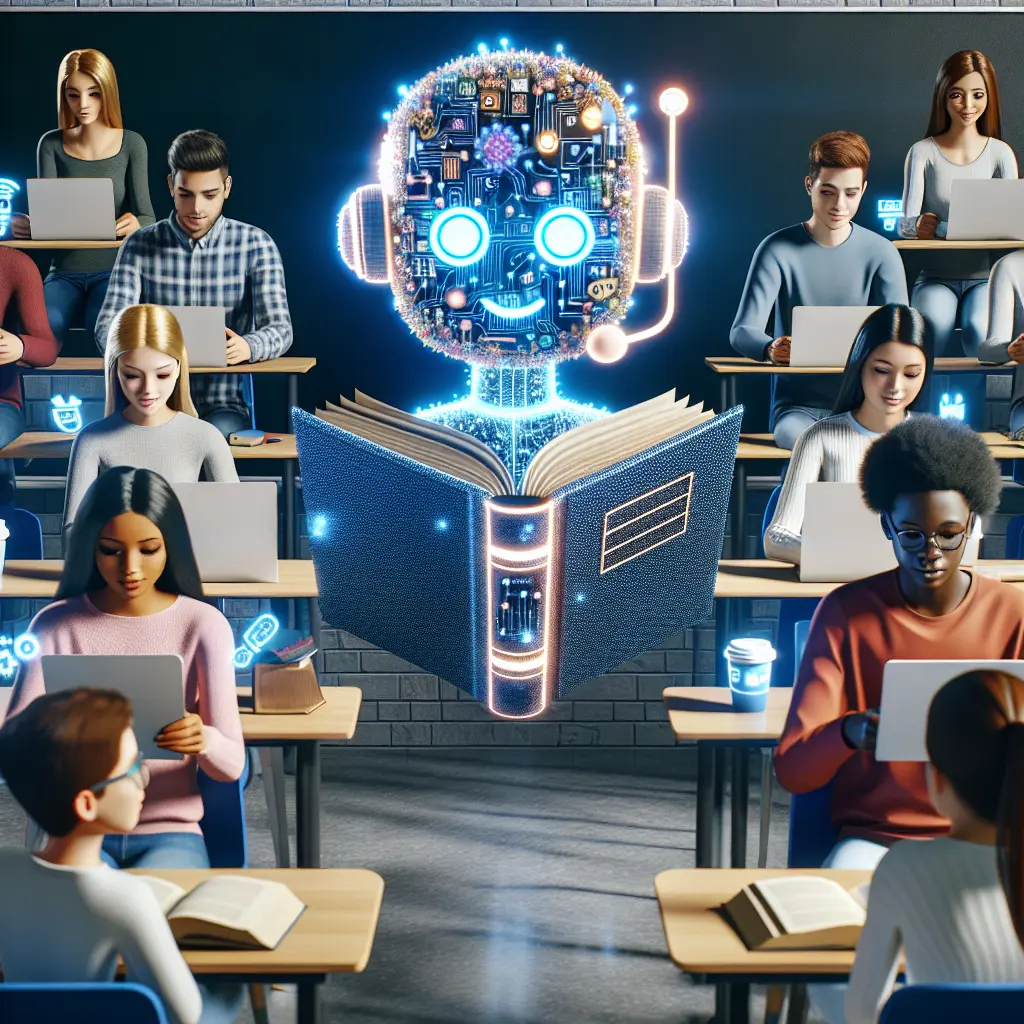
As the landscape of education continually evolves, the integration of advanced technologies such as artificial intelligence (AI) is reshaping how we teach and learn. One of the most prominent tools emerging in this arena is ChatGPT, a sophisticated AI developed by OpenAI. This technology is not only enhancing educational experiences but also pioneering new methods of learning and teaching. In this post, we will explore the multifaceted applications of ChatGPT in education and discuss how this technology is revolutionizing the sector.
Educational Technology and AI in Learning
ChatGPT's role in education serves as a prime example of how AI can be leveraged to enrich educational outcomes. As an AI language model, ChatGPT can simulate human-like text responses, making it an excellent tool for educational purposes. Its ability to generate readable and contextually appropriate content can help in various educational scenarios, from tutoring sessions to content creation.
ChatGPT Applications in Education
One of the key strengths of ChatGPT is its versatility in educational settings. Educators are finding it incredibly useful as a teaching assistant. For instance, it can provide instant feedback to students, help generate creative content for lessons, and even tailor educational materials to suit different learning styles and needs.
Integrating ChatGPT in Classrooms
The integration of ChatGPT in classrooms can significantly enhance interactive learning. It encourages students to engage more deeply with the material and promotes a more personalized learning experience. By interacting with an AI, students can receive immediate answers to their queries, which makes the learning process more dynamic and accessible.
ChatGPT as a Teaching Assistant
Many educators are now using ChatGPT as a teaching assistant. This AI can handle a range of tasks from grading assignments to conducting literature reviews, which allows teachers more time to focus on direct student interaction and personalized teaching strategies. Moreover, as a non-judgmental entity, ChatGPT can help students feel more comfortable asking questions they might otherwise avoid in a typical classroom setting.
ChatGPT for Students: Enhancing Learning Experiences
For students, ChatGPT offers a unique tool to aid in their studies. Whether it's helping with homework, explaining complex topics, or providing practice tests, ChatGPT can be there 24/7 as a supportive learning companion. Furthermore, its capabilities extend to supporting research by summarizing articles and generating citations.
Recent Innovations and News Updates
SearchGPT Is OpenAI's Direct Assault on Google: OpenAI has recently been making headlines with its development of SearchGPT, a direct challenge to Google's search engine dominance. This innovation is expected to integrate seamlessly with educational platforms, offering students and educators a more intuitive and accurate search tool for academic research (Source).
ChatGPT-4o and Privacy Concerns: With the release of ChatGPT-4o, there have been rising concerns about data privacy. Educators and institutions are advised to use these tools while ensuring that all private data handled by AI remains secure and confidential (Source).
Limitations in Medical Applications: A recent study highlighted that while ChatGPT shows promise in various fields, it is less effective in medical diagnostics, underlining the importance of human oversight in critical sectors (Source).
Advancements in Voice Technology: The upcoming version of ChatGPT will include advanced voice mode capabilities, which will not only mimic accents but also correct pronunciation, making it an even more effective tool in language learning contexts (Source).
Ethical Considerations: The creator of Dilbert was reported to have taught ChatGPT potentially hazardous hypnosis techniques, sparking a debate about ethical AI training and the responsibilities of developers (Source).
AI and Education Innovation
The ongoing advancements in AI technology signify a promising future for educational innovation. Tools like ChatGPT not only support the traditional educational framework but also open up new pathways for remote learning, lifelong education, and personalized learning experiences.
ChatGPT Educational Benefits
The educational benefits of using ChatGPT are vast. It democratizes access to information, provides scalable education solutions, and supports diverse learning environments. Moreover, it prepares students for a future where digital literacy and AI interactions will likely be commonplace.
Conclusion
In conclusion, ChatGPT and similar AI technologies are set to transform the educational landscape profoundly. By integrating these tools into classrooms, educators can enhance the learning experience and equip students with the skills necessary for the digital age. As we continue to explore and innovate, the potential for AI in education is boundless.
Thank you for joining me on this exploration of ChatGPT's role in education. The journey towards integrating artificial intelligence into our learning systems is just beginning, and it promises to be an exciting one.
Thomas Knight